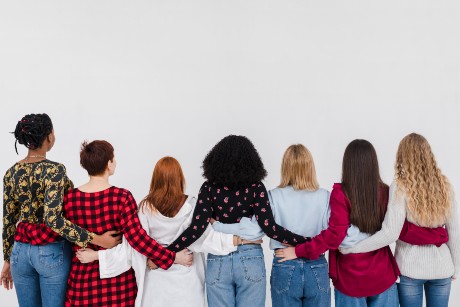Sexual and gender-based violence, in a nutshell, means harmful acts against a person based on their gender identity. These acts can occur in private or in public, and include things that inflict physical, sexual, or mental harm and suffering. Education is an incredibly important part of confronting and working to prevent sexual and gender-based violence. Below are some suggested readings and trainings to help you understand sexual and gender-based violence and have a better idea of how to be part of the solution.
1
Plus récents billets
On August 30, the Canadian Red Cross, along with members of the Red Cross and Red Crescent Movement, mark the International Day of the Disappeared. For the families of those missing, each passing day without contact from their loved ones is one of uncertainty and anguish.
If you’re a teacher or educator, you may be wondering how to introduce your students to global societal issues like armed conflict. It’s a big subject! Fortunately, tackling global issues such as war and peace from the lens of International Humanitarian Law (IHL) can help students understand states’ responsibilities in reducing suffering and protecting civilians.
Doctors, nurses and other healthcare workers in conflict zones work under challenges most of us can’t imagine; treating frequent injuries from bombs and bullets, dealing with disrupted supply lines, and managing hospitals and clinics that are damaged or even under attack.
Now imagine adding COVID-19 into that mix.
Red Cross Talks reached out to Hossam Elsharkawi to discuss the additional threat that the global pandemic poses to those who live and work in areas of conflict.
For people living in conflict zones, the COVID-19 pandemic represents an additional dangerous threat. Learn why International Humanitarian Law is important to protecting civilians' health in these conflict zones.
February 12th is the International Day Against the Use of Child Soldiers. Around the world, children are associated with, and used during, armed conflict with devastating effects on both the child and society. A child associated with armed conflict is not limited to children who engage in the fighting, as children are often used by parties to a conflict as cooks, messengers, and/or for sexual purposes. Many armed groups specifically recruit or capture children because they are easy to physically and mentally control.
Gender-based violence can happen to anyone, but some people are more vulnerable - especially those living in war and conflict-affected areas. International Humanitarian Law protects women in times of conflict, read how.
Journalists play a critical role in reporting what is happening on the ground during armed conflicts. This puts journalists in a unique and important position when it comes to International Humanitarian Law, as they witness first-hand what is happening. Check out this series of webinars for journalists to learn more about International Humanitarian Law, and resources that are available.


